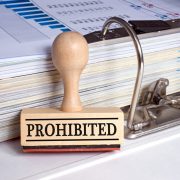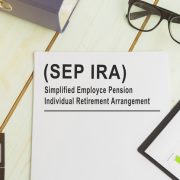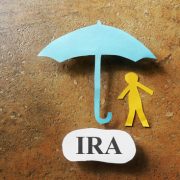What Doesn’t Count as a Valid Self-Directed IRA Investment?
What Doesn’t Count as a Valid Self-Directed IRA Investment?
Investors who have looked up all sorts of information about Self-Directed IRAs are probably noticing one theme: A Self-Directed IRA makes it possible for them to include all sorts of different assets in a retirement portfolio. But what about the assets not valid within a Self-Directed IRA? There are indeed some limits set by the IRS, and it is important for investors who want to direct their own accounts to understand what these are.
Why Set Retirement Limits?
First things first: why does the IRS limit what investors can use within a Self-Directed IRA? Actually, the IRS limits what an investor can hold in any retirement account, Self-Directed IRAs included. And because the purpose of the IRA is to set aside a nest egg for retirement, the laws regulating these accounts tend to promote investments. That means alternative strategies—such as investing in collectibles—have to be considered outside the bounds of retirement accounts and within an investor’s personal holdings.
What are Some Things Investors Cannot Use in a Self-Directed IRA?
Let us get more specific. What are some of the items that investors cannot hold within a Self-Directed IRA—or any retirement account, for that matter?
- Life insurance. As insurance is not a form of investment, but a form of financial protection, it is not considered a valid holding within an IRA. This means that investors cannot pay for policies from a retirement account, for example, but rather from their personal funds. They have to keep life insurance separate from their retirement accounts.
- Art. Fine art can be very difficult to define and store without incurring some sort of personal benefit, which is why it would make such a tricky retirement asset if it were allowed. However, art and similar collectibles are not allowed within an IRA.
- Alcoholic beverages. Have a collection of fine wines and single-malt whiskeys? They are your collection’s, not your retirement funds. Alcoholic beverages fall under the category of collectibles that have highly subjective value, which makes them terrible for retirement investing purposes. That is why the laws state that investors cannot own these items within a retirement account. If you want to keep them personally and consider them your own long-term investment (on a personal basis), that is fine—but not within a retirement account.
- Collectibles. Speaking of collectibles, what are some other collectibles that you cannot include? Anything tangible that you might store yourself at your home—say, a favorite collection of baseball cards—should be considered personal property and not within the confines of a retirement account.
It is also not possible to use the IRA as collateral for a loan, as this would render the account useless as a retirement fund. Only personal funds and property can be used as collateral.
Why Can’t Investors Use These in a Retirement Account?
One key distinction here is that anything you own in a retirement account will have to be kept separate from your personal funds. That is one reason why a home wine collection is not really a retirement asset, as it is something that you keep personally. Even with a Gold IRA, for example, investors use Self-Directed IRAs to instruct a Self-Directed IRA custodian how to store the gold, which has to be kept separate from one’s personal funds. This is just one key reason that these possessions should not be considered valid as part of a retirement plan—at least when it comes to keeping these in a retirement account and reaping the tax benefits.
Interested in learning more about Self-Directed IRAs? Contact American IRA, LLC at 866-7500-IRA (472) for a free consultation. Download our free guides or visit us online at www.AmericanIRA.com.








